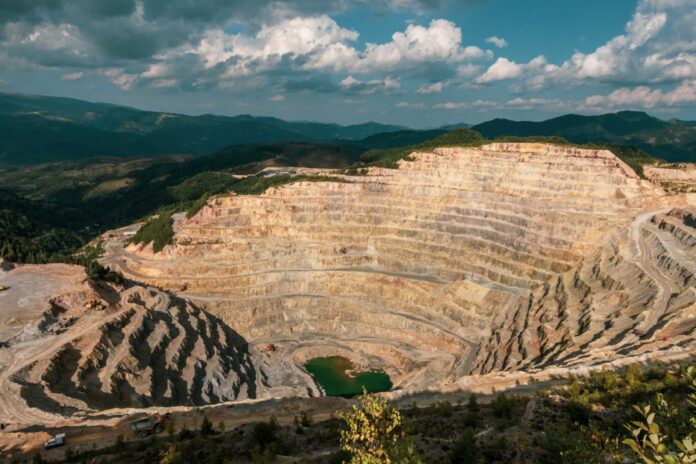By Johanna Sydow
Special to The Times Kuwait
Mining giant Glencore has been extracting copper in the Peruvian province of Espinar for more than a decade. During that time, the presence of toxic metals in the local environment and people has been well documented. But only recently has the Peruvian government acknowledged what was obvious to many on the ground: a causal link between Glencore’s Antapaccay operations and pollution in Espinar. The company has yet to make amends with the affected indigenous communities.
Demand for copper, and other critical minerals used in green tech, has increased substantially. But so far, only a handful of countries are responsible for mining and refining these resources. China, for example, accounts for more than 70 percent of rare-earth mining and 50 percent of the world’s (natural) graphite, cobalt, lithium, and manganese processing. In the wake of the Ukraine war, many in Europe are wary of depending on a single country.
“The race is on” to dominate clean-energy technology in the future, noted European Commission President Ursula von der Leyen in March, when she announced the Critical Raw Materials Act, which aims to reduce the European Union’s current dependencies. Together with the proposed Net-Zero Industry Act, it is the bloc’s response to the United States’ Inflation Reduction Act, which includes a commitment to increase the domestic supply of critical minerals.
The rise of industrial policy is not the only evidence that the world is waking up to the importance of raw materials. The International Energy Agency held the first ever global summit on critical minerals and their role in the green transition earlier this year. More recently, while addressing world leaders at this year’s United Nations Climate Change Conference (COP28), UN Secretary-General António Guterres focused on how best to meet soaring demand for copper, lithium, cobalt, and more.
This means that the mining industry, which the UN has categorized as a high-risk sector for human rights, will play an indispensable role in the energy transition. In this context, many European leaders are willing to turn a blind eye to the industry’s human-rights violations and environmental destruction. But neglecting these issues could undermine the EU’s efforts to secure access to raw materials and to mitigate climate change.
In his speech, Guterres stressed that the extraction of critical minerals “must be done in a sustainable, fair, and just way” to avoid repeating the “mistakes of the past” – a reference to the rich world’s historic pattern of systematically exploiting developing countries’ natural-resource wealth. To prevent such an outcome, he announced the creation of a new panel of government, industry, and civil-society leaders to draft voluntary guidelines for extractive industries. Similarly, the Minerals Security Partnership, an alliance of wealthy governments, seeks to improve environmental, social, and governance (ESG) standards across the global minerals sector.
While these efforts are a step in the right direction, they will not be enough to ensure that sustainability rules are respected. With the Critical Raw Materials Act, the EU intends to create mutually beneficial partnerships with resource-rich countries and promote strategic projects for critical-mineral mining, processing, and recycling. But pressure to move fast could lead to the revival of old practices. Moreover, monitoring of compliance with human-rights and environmental standards will be outsourced to private certification providers, at least for projects outside the bloc.
Certification systems have been shown to deliver inadequate human-rights and environmental protections in the mining and raw-materials sectors. For example, the German certification company TÜV SÜD confirmed the safety of a dam near Brumadinho, Brazil, just months before it failed, killing hundreds of people. More recently, a mine run by BMW’s cobalt supplier in Morocco, which had been certified by the Responsible Minerals Initiative, was found to be releasing large amounts of arsenic into nearby bodies of water.
The EU needs more effective tools. The proposed Supply Chain Due Diligence Directive, which would oblige companies to prevent adverse environmental and human-rights practices in their supply chains, is crucial and should be applied to financial firms as well, given their importance in the raw-materials sector. Moreover, the EU must play an active role in the negotiations for a UN Binding Treaty on Business and Human Rights, to prevent multinationals from harming the environment and local communities, as happened in Espinar.
Equally important is an honest appraisal of what is driving demand for materials such as copper and iron and how to reduce consumption. The automobile industry, for example, uses huge quantities of critical minerals. Germany’s construction and transport sectors also are the main drivers of demand there, rather than the energy transition. This suggests that European policymakers should build more energy-efficient public-transportation systems, encourage smaller vehicles and batteries, and promote a circular economy.
Even though the Intergovernmental Panel on Climate Change recommends reducing material consumption to mitigate global warming, this message has been lost in the rush toward renewables. But such an approach would undoubtedly be effective, as extracting and processing critical minerals requires vast amounts of water and causes environmental pollution. Seven metals alone — iron, aluminum, copper, zinc, lead, nickel, and manganese — are responsible for 7 percent of global greenhouse-gas emissions, according to the OECD.
By focusing on lowering demand, and introducing more stringent requirements and effective mechanisms for due diligence, the EU could prevent environmental harms and human-rights abuses while also meeting its goal of building a more independent and resilient bloc.

Johanna Sydow
Head of International Environmental Policy Division at the Heinrich Böll Foundation.
Copyright: Project Syndicate
www.project-syndicate.org

















